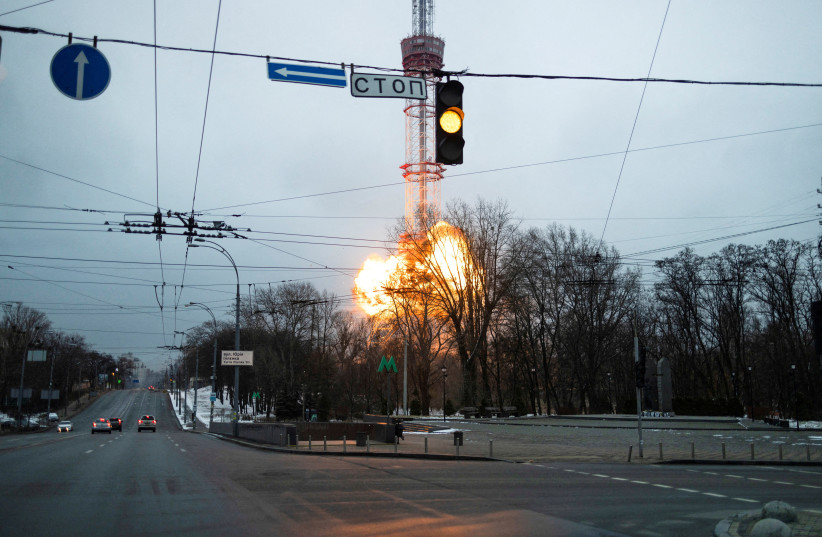On an official visit to Cyprus Wednesday, President Isaac Herzog condemned the Russian attack on the civilian population of Ukraine and the damage inflicted to the Babyn Yar monument.
Last week, two days before the Russian invasion of Ukraine, Herzog was very circumspect in answering questions from American visitors about Ukraine. This week he could no longer contain his feelings, in the course of his visit to discuss bilateral relations with President Nicos Anastasiades.
Herzog, who hosted the Cypriot president last December, declared the war in Ukraine to be “an affront to the international order.”
He said that he was very concerned for the citizens of Ukraine and members of the Jewish community who are in peril. “I hope and we all hope and pray this war ends quickly,” he stated.
Herzog was in Ukraine last October to join President Volodymyr Zelensky and German President Frank Walter Steinmeier in commemorating the 80th anniversary of the Babyn Yar massacre and to inaugurate the Babyn Yar monument.

Relating to the Russian assault on the monument, Herzog said: “the attack on Babyn Yar epitomizes the terrible tragedy that we are witnessing unfolding in front of our eyes. We express great pain and suffering over what is happening there.”
When planning his visit to Cyprus, Herzog’s intention was primarily to discuss the excellent bilateral relations that exist between Israel and Cyprus.
But after being welcomed by Anastasiades, Herzog felt that he not only had to comment on the current conflagration, but to go back in history to 1941, when in a period of 48 hours, more than 33,000 members of the Jewish community of Kyiv and its surroundings were shot and buried at the site. Herzog explained the Nazi atrocity to his host, as he recalled the dedication ceremony of the Babyn Yar Monument.
Only in the 1960s, he noted, was the atrocity at Babyn Yar brought to widespread attention by Russian poet Yevgeny Yevtushenko. Until then, it was totally hidden, said Herzog.
Just this week, he added, a Holocaust survivor presented him with a book signed by Yevtushenko in which the historic poem was published. “All of a sudden that site was attacked by missiles.”
Herzog reiterated what he said in part in Greece last week, namely that the Israeli government has reaffirmed its support for Ukraine’s territorial integrity and has joined the international community in supporting the United Nations General Assembly resolution to advance a diplomatic solution to the conflict.
He also emphasized that Israel is sending an unprecedented amount of humanitarian aid to Ukraine. “We see this as a moral obligation,” he said.
As deeply affected as he was by the turn of events in Ukraine, Herzog did not forget the original reason for his visit to Cyprus, and spoke of how relations between the two countries have strengthened over the past decade, and how together with Greece, the three countries form a pillar of Mediterranean stability.
Herzog is scheduled to visit Turkey next week.
